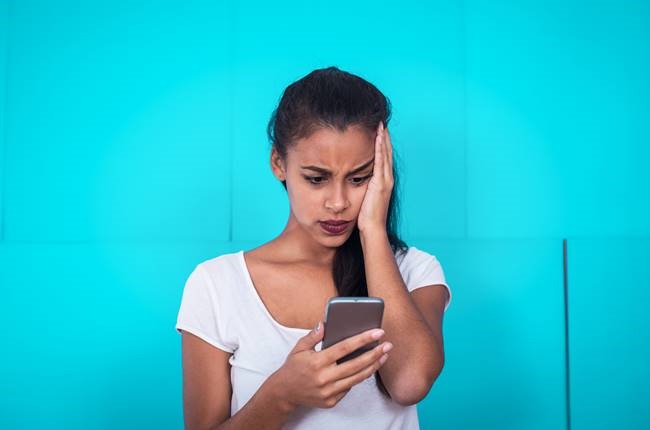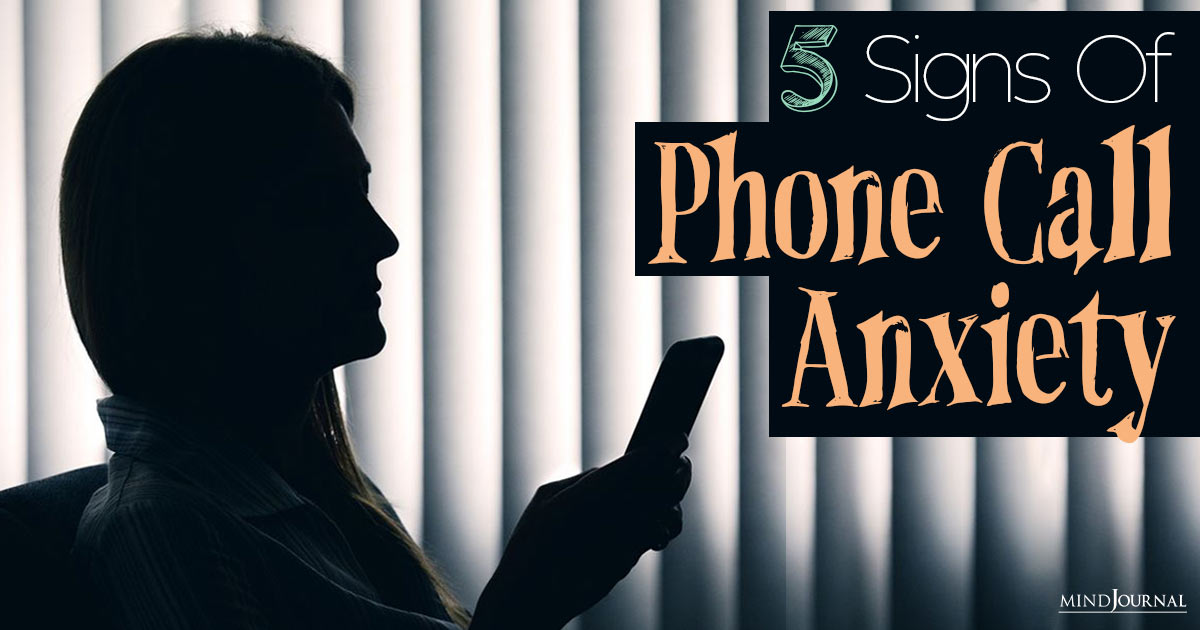Does the ringing phone send you into panic mode? It could be a sign of phone call anxiety. The fear of and avoidance of phone calls, often known as phone call anxiety or telephobia, is a prevalent symptom of social anxiety disorder.
In today’s world where phone calls have become an inseparable part of our lives, there are still many individuals who experience a profound and genuine fear of making phone calls.
For those who find it challenging to grasp the concept of phone call anxiety, let’s delve into a list of unmistakable signs that can shed light on this anxiety condition. Below, you’ll find clear indications of phone call anxiety, signs of phone call anxiety, and phone and anxiety relationship to the accompanying emotional experiences.
Conversational Clumsiness And Other Signs Of Phone Call Anxiety
1. Heart-pounding Panic:
Overwhelming feelings of nervousness and racing heartbeats that arise at the mere thought of making or receiving a phone call. This intense anxiety can grip individuals, causing their hearts to race as if in a marathon, leaving them breathless and overwhelmed.
The anticipation of dialing a number or hearing the ringtone triggers an avalanche of apprehension, making the simple act of answering or initiating a call feel like a daunting task. The surge of adrenaline intensifies anxiety accompanied by sweaty palms, trembling hands, and a racing mind that envisions worst-case scenarios.

Each beat of the heart echoes the fear of potential judgment, awkwardness, or misunderstandings that could arise during the conversation. The physical and emotional toll of this heart-pounding panic can be paralyzing, often leading individuals to avoid or postpone phone calls, missing out on important connections and opportunities.
2. Conversational Clumsiness:
One of the common signs of phone call anxiety is a distinct struggle to find the right words and maintain a smooth flow of conversation. During phone calls, individuals grappling with this anxiety may find themselves stumbling over their words, experiencing frequent awkward pauses, or feeling tongue-tied as if their vocabulary has temporarily abandoned them.
The experience of conversational clumsiness can be likened to a dance on a slippery floor, where every step feels precarious and uncertain. Individuals may desperately grasp for the right words, only to find them elusive and out of reach. The resulting silence hangs heavy, amplifying the discomfort and heightening their anxiety.
As a consequence of this conversational stumbling, individuals may begin to doubt their own abilities to engage in meaningful phone conversations.
Overall, conversational clumsiness in the context of phone call anxiety is an intricate dance of uncertainty, self-doubt, and linguistic hurdles that can leave individuals feeling frustrated, self-conscious, and anxious about engaging in phone calls.
3. Silent Stifling:
People suffering from phone call anxiety, often employ avoidance tactics as a means to cope with their fear. One prevalent strategy is to silence the phone or put it on vibrate mode, effectively evading the anxiety-inducing ringtone.
While this may provide a momentary respite from the distressing anticipation of incoming calls, the ensuing silence carries its own weight, leaving a profound impact on individuals’ emotions and sense of connection.
With each silenced phone call, there’s a growing fear of being out of touch, missing out on important information or meaningful exchanges. The stifling feeling of anxiety intensifies, akin to a suffocating grip on their social and professional lives.
Read more here: 5 Tips For Handling Someone Who Is Being Defensive
While the silence may temporarily shield them from the anxiety-inducing moments, it also perpetuates a cycle of avoidance, reinforcing the underlying fear and inhibiting their ability to engage in essential phone-based interactions.
Ultimately, the silent stifling experienced by individuals with phone call anxiety reflects a complex interplay of relief, isolation, and a growing fear of disconnection.
4. Mind Maze:
Phone call anxiety can often trap individuals within a complex and intricate mental maze, where their thoughts race uncontrollably and worst-case scenarios vividly play out in their minds.
This phenomenon engulfs them in a web of worries, where they imagine potential misunderstandings, harsh judgments, and cringe-worthy awkward moments. As they attempt to navigate this intricate maze, the strain on their mental well-being increases, contributing to the amplification of their anxiety.
Consequently, they encounter imposing barriers that hinder their ability to confidently initiate or respond to phone calls, further exacerbating their anxiety with anxiety-induced challenges.
5. Social Isolation:
As phone call anxiety takes hold, individuals often develop a strong preference for alternative forms of communication, such as text messages or emails, in an attempt to circumvent the anxiety-inducing nature of phone conversations.
While these methods may provide momentary relief from distress, they also contribute to a deepening sense of isolation. Deep down, there exists a yearning for authentic human interaction, for the warmth and nuances of vocal expression that text-based communication cannot fully capture.
However, the fear of phone calls becomes a trap, holding them back from engaging in the very interactions they crave. The resulting isolation takes a toll on emotional well-being.
Read more here: How To Improve Communication Skills: 5 Proven Techniques
Individuals may find themselves withdrawing from social and professional spheres, limiting their participation and missing out on opportunities for meaningful connections. The absence of genuine conversations can be emotionally draining, creating a void that cannot be filled by text-based exchanges alone.
Behind this isolation lies a longing for the confidence to engage in phone calls without overwhelming distress. They desire the ability to express themselves freely, to navigate conversations with ease, and to forge connections that transcend the limitations of written words.
Pick The Phone, Don’t Hesitate
Exposing oneself to more phone calls is one of the best methods to get over phone call anxiety. It becomes less intimidating the more you do it. Your fear of using a phone is probably related to your lack of experience as well. You will feel less anxious and more confident as you gain experience.
Making a list of the individuals you need to call, such as friends or coworkers, can help you start this process. As you go through each one, think about what it is about the call that makes you feel uncomfortable.










Leave a Reply